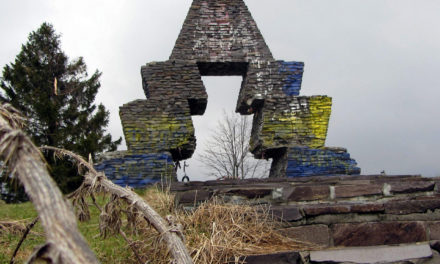Analyst Zsolt Pászkán, an expert at the Hungarian Institute of Foreign Affairs, pointed out: the rejection also serves propaganda purposes, but at the same time it also has power implications, it provides the illusion of the power of the Romanians over the Hungarians.
At the same time, it also serves to gain control over the Republic of Moldova and to prevent the autonomy aspirations of other regions.
We asked the Nagybánya-born expert in connection with the fact that the two houses of the Romanian parliament once again rejected draft laws formulating Hungarian demands for autonomy. When asked why the Romanian politician rejects self-determination so vehemently, when there are many European examples that prove that autonomy can guarantee peaceful coexistence, the analyst explained: there are many layers to this rejection and not all of them are related to the Hungarian-Romanian relationship.
On the one hand, there is a propagandist layer, the essence of which is that if they "grant" (quotation marks will have significance later) autonomy to "the Hungarians", then based on the somewhat Bolshevik view of history of continuous development, only secession would be inevitable and mandatory, leaving a big hole. in the heart of Romania".
This concept holds despite the fact that even its adherents cannot explain how such a separated area could function, hundreds of kilometers from the motherland, or - let's say - the geographical conditions necessary for independent, in this case, independent economic activity from the Romanian state (for example, a without a beach that can be protected and has its own exit). But there is no need to explain this, because it is actually not an argument, but a rallying cry, a »battle cry« for the maintenance of »Romanism«.
The next and more sophisticated layer is the power, i.e. the state representing the Romanian ethnicity (together with its administrative, legislative, judicial, law enforcement, secret service, economic, etc.) bodies, by granting or not granting community rights, the rule of the Romanian ethnic group over the Hungarian community (but in fact, it can display the illusion of it maintained in the Romanian ethnicity).
So, by "granting" or revoking community rights, sabotaging them in a visible, loud, or sly way (but with a wink at the Romanian ethnicity), or openly refusing (as now, in the case of the three bills), the maintenance of "Romanism" is also serves, because it assures citizens of Romanian ethnicity that their "state" ensures that the chauvinist art continues to be valid ("We are Romanians, we are Romanians/ Forever masters of these lands"), and by ensuring that those who identify themselves as Romanians for citizens, the illusion of power over the 'tolerated' and the self-image of the 'generous tolerator', which provides a false but cognitive comfort," emphasized Pászkán.
The Transylvanian Hungarian Association does not give up, it resubmits the autonomy drafts
Belated nation building
The analyst pointed out: there is also a third layer, and it is also related to "Romanism", but it is related to its "Romanian-Romanian" aspect.
"It is about the fact that - in my opinion - Romanian national development started too late, and in just 40-50 years out of this short, less than 150 years, the territory and population of the unprecedented Romania grew at such a rapid rate, and there were such great differences between between areas and populations apparently compatible with each other due to the same language and religion, that a political class in Bucharest, which was not suitable for this, could not process it during the short periods between expansions, which are not always suitable for this.
And this "growth disease" was only further aggravated by the Bolshevik and then National-Communist eras.
The former prevented the development/strengthening of a healthy and lasting national consciousness due to its internationalist nature of denying the nation, and the latter by returning to the previous layer built from historical falsifications, self-flattering and illusions in "nation-building" and tried to make it durable and shock-proof.
However, it may happen that this layer conventionally called "Romanism" or Romanianness is by no means as strong as many people believe or want to believe, and "Romanism" is no better able to withstand the impact of a possible shock than "Yugoslavia", it was done by the "Soviet Union" or "Czechoslovakia". It is enough to look at the desperate struggle that Bucharest waged in Moldova, then Ukraine, and is still waged against the Moldovan national consciousness.
Because the fight against the Moldovan language is not a fight for language, but for domination. The Moldavian language had to and should be erased from public life in Moldova and Ukraine not because linguistically it is no different from Romanian, but because it is a symbol of Moldovan national consciousness independent of Romania and "Romanism".
However, Bucharest is afraid that the mere existence of Moldova as a Moldavian will pose a domestic political challenge for it, whether or not the area between Prut and Dniester is annexed (»unified«). It is not for nothing that Romanian politicians (from "progressives" to "wild Romanians") use the expressions "two Romanian countries" and "sister-sister people" in relation to the two states. And this is not a new fear for Bucharest, it is enough to refer to the initiative of the late mayor of Iași, Constantin Simirad, who founded the short-lived Party of Moldovans in 1997, whose coat of arms and flag referred to the historical Moldavia, and which in 2002 the PSD they also disappeared with the fusion that took place. At the same time, in order to protect this thin layer of "Romanism", it is (more) convenient for Bucharest to talk about Hungarian or Székely "separatism" than about Moldavian (and perhaps, later, Dobruja or Oltenia) desires for autonomy", the analyst emphasized.
Well-functioning anti-Hungarianism also serves to gain votes Zsolt Pászkán explained to us that they want to maintain the Hungarian-Romanian conflict on purpose, with the aim of gaining votes: in addition to the already mentioned, more comprehensive and wide-ranging considerations, fears and aspirations, there is of course also an immediate benefit, namely anti-Hungarianism it is one of the few connecting elements that hold the above-mentioned "Romanism" together. "This is a tool for Romanian politicians (regardless of any party or organization) and for public life in general (we know of an NGO made up of Romanians and funded by Romania or abroad that at any time would have set as its task the pro-Hungarian "sensitization" of Romanian society) inside?!), which everyone, from the smallest farm to the capital, and from the functionally illiterate to the highly educated specialist, understood without any particular explanation or justification (see the first layer above).
So as long as this "crutch" works, and we see that it still works and brings votes, neither the politicians nor the majority of society will give it up."
Pászkán pointed out.
There is only a chance to accept autonomy through the cessation of "training" towards anti-Hungarianism
We also asked: what would it take after this for Bucharest to see that only the guarantee of autonomy can lead to an easing of the Hungarian-Romanian confrontation.
"If I want to be cynical, I'd say it's brain surgery on a societal level. Anyway, the thing is that the Romanian society and its leaders finally grow up and face themselves and get to know themselves.
The anti-Hungarian training of society through education, the media, and one of the forums of public life should be abandoned. And they should learn how to solve the Rubik's Cube. Because in the last hundred years or so, they have behaved like the poor player who, after laying out a single page (partly with good situational awareness, but mostly with luck and in the interest of great powers), grasps that page tightly and tries to lay out the others, which obviously will not work, and sooner or later it will lead to the disintegration of the whole thing. After all, the essence of the Rubik's cube is precisely that you have to break the easily put together single side so that all the colors fall into place!
This would be autonomy, indeed, the acceptance of autonomies, and it would make not only Hungarian-Romanian, but also Romanian-Romanian relations more tolerable"
Zsolt Pászkán explained to Krónika.
Featured image: Zsolt Pászkán / YouTube/ Screenshot












